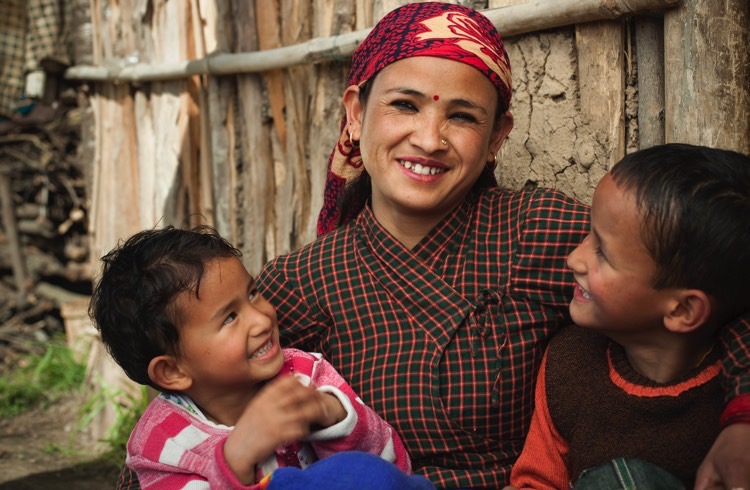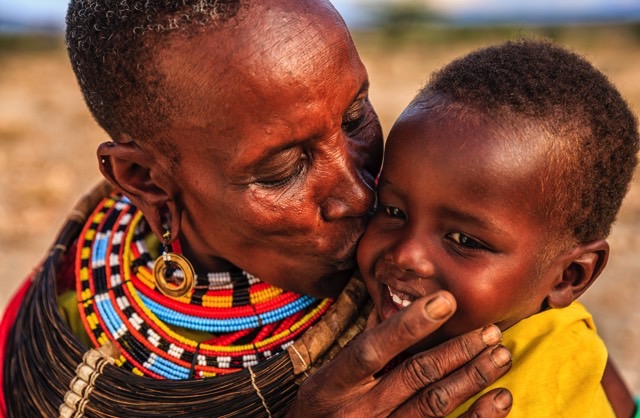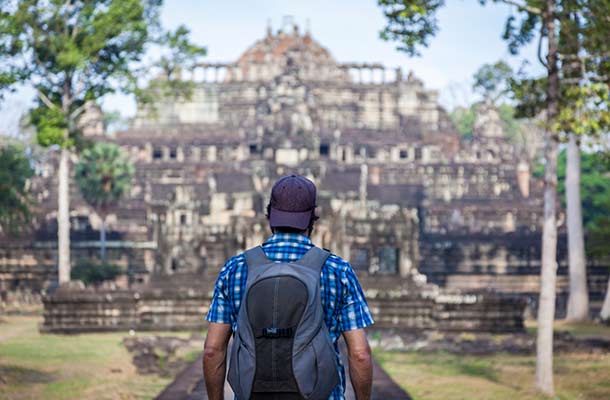Orphanage Tourism – Is It More Harmful Than Helpful?
While there's little doubt a traveler who signs up to help at an orphanage is intending to help the community, they could be helping an industry which takes advantage of the vulnerable.
 Photo © Getty Images/gawrav
Photo © Getty Images/gawrav
The idea of helping orphaned children is popular with many travelers, but mounting evidence suggests that the most vulnerable in our communities aren’t benefitting at all – but are being exploited and damaged by the experience. How can we swap orphanage tourism for a better outcome for all?
What is orphanage tourism?
Orphanage tourism is a way that volunteers can be involved in the lives of children in care during their travels, helping to fund orphanages to, in theory, offer children better lives. In reality, it’s not always the case.
Orphanage tourism originated from an appetite to experience real life, and an increased ability to travel to more of the world, including developing countries. Most commonly, volunteers who want to work with orphaned children come from backgrounds of comparative
What are the negatives of orphanage tourism?
According to the charity Save The Children, the number of orphanages in some countries has increased, while the number of orphaned children has not. In Cambodia, for example, the number of residential care institutions has dramatically risen in the past 10 years, while the number of orphans has significantly reduced.
“Well-intentioned tourists visit orphanages and donate money,” explains LearningService.info co-founder Daniela Papi-Thornton. “In direct response to these good intentions, an industry has formed to profit from vulnerable children. In many cases, the children are not orphans; they are taken from parents who have been sold a story that a better life awaits them in the city, where they will be given an education and be well cared for. At its very core, this amounts to child slavery, and travelers should avoid participating in it.”
Another issue is allowing travelers access to children, unchecked, which raises an important issue of child safety; not everyone visiting orphanages has the children’s best interests at heart. “It’s crazy when you think that orphanages are allowing foreign, unskilled and transient strangers intimate access to children,” says Liz Manning, Intrepid Travel’s Responsible Business Manager. “It’s a major child protection risk.”

There is also the issue of the effect encounters with an ever-changing group of carers have on children. “The constant rotation of adults coming in and out of vulnerable children’s lives also creates attachment disorders,” says Manning, “the effects of which are lifelong and inter-generational.”
While no doubt, a traveler who has signed up to help at an orphanage hopes they will offer a helpful extra pair of hands to benefit the day-to-day running of the place, in reality, this is often just a way of eliciting an emotional connection from volunteers who then feel compelled to donate. “This is what fuels the proliferation of orphanages,” says Manning, “and the need to fill them with children. Research has found 80 percent of orphans have at least one parent at home.”
For orphanage owners and managers, this is how they make money, and while the volunteers might feel social gratification, the children almost certainly don’t. Children are not and never should be tourist attractions, and yet many orphanages are profiting from the good intentions of well-meaning volunteers.
How can travelers help in a different way?
While stopping orphanage tourism suddenly could have a hugely negative impact on the communities that are supported by the income, tourism operators could gradually phase out their support, to give communities a chance to find another way of funding themselves. This is where volunteers could be of great help. “Individuals who have relevant expertise, like a child protection background, or experience working with children who are or have been in residential care, can play an important role in supporting the organizations’ transition to better models of care,” says Manning.
If communities can see a life without the need to put their children in care for financial gain, they are less likely to do it.
Ending the pattern and orphanage tourism alternatives
Orphanage care will only end if better models of care are developed and encouraged so that communities see the benefit of change.
Instead of choosing to volunteer at an orphanage, research and support organizations that work to keep families together
Trave l to and support regions where local governments are trying to slow the growth of orphanage tourism by encouraging travelers not to include these activities in their itineraries.
- Make a point of eating, shopping and buying tours and experiences from small family businesses so that putting their children into an orphanage does not become a financial imperative.
- Research and donate to organizations that work to return children to their families or communities.
We don’t want anyone to curb their strong desire to give back, but you can do more by helping organizations that provide support services to families in need, and, instead of orphanages, visit community-based social enterprises that provide skills training to young people and their caregivers. One great example is the network of restaurants and other businesses run by Friends International across Southeast Asia.
Save The
When more of us are informed about the orphanage industry, we will help each child realize their right to grow up in a family or familiar community.
Related articles
Simple and flexible travel insurance
You can buy at home or while traveling, and claim online from anywhere in the world. With 150+ adventure activities covered and 24/7 emergency assistance.
Get a quote


9 Comments
Interesting article. However, there are orphanages and children's homes around the world, mostly church related, that utilize short and long-term help with both with child care and with physical projects on the facility. They vet the people who come to help. It is an excellent way for supporting groups to really understand the work being done and to feel a real connection. Those groups tend to have consistent oversight and, like the better programs in the States, to be looking for ways to connect the children with their families whenever possible and appropriate. Our church supports a work called Neemah Village (http://www.neemavillage.org/). One should always check the credentials and oversight of any work they support of volunteer with.
Fantastic article. Thank you for highlighting and educating people on the harsh realities of orphan volunteering.
Interesting feature. Is there no accreditation system to distinguish ethically unacceptable operations like these from legitimate facilities? Clearly there are many children who are abused, neglected or have no parents, and who need the services of responsible caregivers. That happens in my own first world city, where institutional care is court ordered in some cases. I think the writer needs to dig further into a "how can you tell whether a place deserves your support or not" approach, rather than simply telling us not to support any facility.
a way to ameliorate these possibilities is to adopt the model of
ICC (international children's care).
go check it out..
Dave S, of course there is no accreditation system, that's absurd. There are NO orphanages that anyone should be supporting because the very idea of institutionalised care is bad for a child, very bad indeed. Check out JK Rowling's charity Lumos which focuses on closing orphanages down and placing children with families (their own or vetted loving adoptive families)
My comment is
I need to help me and my brother's and sister's a bout education because we are orphan, we don't have money to school fees and environment use. I will be happy if they are help me and young brother's and sister's, may God bless very one
Thank you
I decided not to help as a teacher of small children because of the attachment disorder. Children bond with their teachers and then the teachers leave/abandon them in order to go back to their "real" lives in rich countries. After a long conversation with the director at one of the biggest African aid projects, I decided the best thing to do is to actually get involved training teachers who will not leave because they live there.
Brothers and sisters...
Let's help orphans and needy people in Indonesia with us
Please support us at ussunnah.org/orphans
Great article. My thoughts exactly.
A big thank you to Kate Duthie...🙏